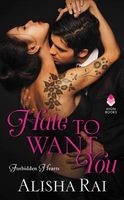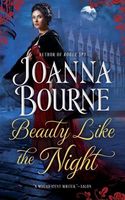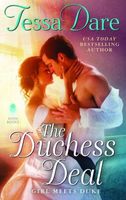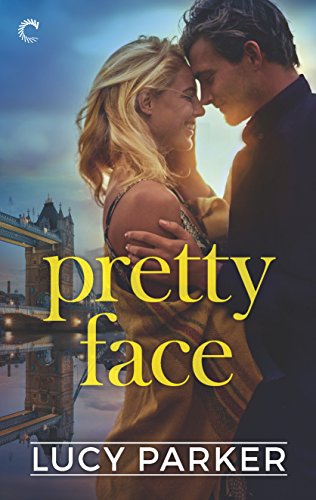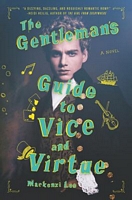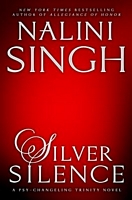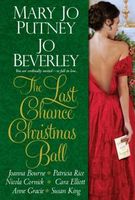El otro día, leyendo el blog de All About Romance, me encontré con esta encuesta en la que preguntaban cuál era tu libro favorito de Joanna Bourne.
Entré rápidamente pensando, ¡ay, que se me había muerto una de mis autoras favoritas!
(Sí, lo sé, soy madre, siempre me pongo en lo
peor).
No, está viva y coleando. Lo que pasa es que el 10 de
marzo ha anunciado su retirada, con una entrada en Word Wenches, página que
comparte con otras señoras de romántica histórica. Lo titula «Ha sido muy divertido», que creo que sería la frase hecha equivalente a nuestro fue bonito mientras duró.
A Joanna Bourne la descubrí gracias al Reto AAR 2013,
es decir, el desafío que asumí de leer y reseñar las cien novelas escogidas por
los lectores de romántica como sus preferidos del género.
Se convirtió en una de mis autoras favoritas y por eso le dediqué una página en el año 2015. Allí detallé toda mi admiración por sus novelas, por su talento y más cosas.
Escribe romántica histórica, ambientada en el mundo de
las guerras napoleónicas. Su serie Spymasters es una de las mejores de la
novela romántica ever. Para mí, es
una especie de John le Carré de la Regencia inglesa.
En 2020 recordé a mis autoras favoritas en un artículo en el que me preguntaba «¿Qué fue de mis favoritas…?».
Incluí a Joanna Bourne en la sección Missing total, y comenté:
De Joanna Bourne comento un poco lo mismo: sé que sigue viva y escribiendo, pero sin publicar, porque la he visto activa en Typepad y en el blog de las Word Wenches. Su último spymaster, Beauty like the night, es de agosto de 2017, y entendí que era el cierre de la serie.
Ahora, un año después de aquella entrada mía, me
encuentro con que echa el cierre a su carrera como escritora. Deja una producción corta pero increíblemente buena.
Cuando leí la entrada en AAR, me apresuré a contestar
las dos preguntas que hacían. ¿Libro favorito? The Black Hawk. ¿El primero que leí de ella? The Spymaster’s Lady (Desarmado por un baile), el único de ella que
está “traducido”.
Fui a la entrada en Word Wenches, a ver qué había
pasado. Daba sus razones, perfectamente comprensibles y personales, para la retirada.
Básicamente, que ha estado muy bien pero está cansada.
Alega que el cerebro viejo no funciona tan
bien como en el pasado. El cuerpo decrépito no soporta ya las exigencias
físicas y emocionales del trabajo literario.
Por ello entiende que ha llegado el tiempo de poner
los pies en alto, dejar que su perro y su gato le calienten el regazo y
dedicarse a ver la tele o hacer punto.
Lo comprendí. En mi interior solo he podido agradecer
su trabajo y desearle buena suerte, ha sido fantástico.
Me entraron ganas de releer la serie Spymasters. Solo
que esta vez, en lugar del orden de publicación que fue el que seguí la primera
vez que leí estas novelas, ahora voy a releer siguiendo la cronología interna,
que ella misma propone en su página web, así puedo ir viendo a Adrian de niño, luego de joven, madurar, etc.:
The Forbidden Rose (París, 1794)
The Spymaster’s Lady (Desarmado por un baile) Francia e
Inglaterra, 1802
Rogue Spy (Londres,
1802)
My Lord and Spymaster (Londres, 1811)
The Black Hawk (Francia e Inglaterra, de 1794 a 1818)
Ya me he releído The forbidden rose, le di ⭐⭐⭐⭐ en mi crítica y ahora me ha parecido todavía mejor… Y yo me he sentido peor. Ya no puedo decir «fue bonito mientras duró». Como una yonqui, quiero más de esto. Suspense romántico de calidad extraordinaria, tan buena como cualquier ficción literaria.
His touch passed up the skin of her arm like a bird over water, leaving the shadow of his passage.
He seguido con The
spymaster’s lady (Desarmado por un baile), en inglés, y me ha gustado
todavía más esta tercera vez que la leo. Gente inteligente, hábil, giros que me
siguen sorprendiendo. Enemigos que se enamoran hasta las cachas mientras luchan e intentar no matarse el uno al otro, todavía.
Have I told you I love you, Annique? It started about the fourth time you tried to maim me. I never did find the time to say the words.
Siento tristeza, y hasta ganas de llorar, lo
reconozco. Con la que está cayendo y la de cosas que he visto y oído este último
año que me han dejado arrasada el alma, y, ¿me entristezco por esto? ¿Por una
jubilación bien merecida? No tengo arreglo.
Releer The
forbidden rose y The spymaster's lady me ha hecho darme cuenta de que escribe prodigiosamente bien. Creo que la primera vez que leí sus novelas estaba tan
encandilada con la intriga que no me fijaba en el lenguaje, en las palabras, en
esa forma de escribir tan precisa, como una labor de punto de cruz, cada
puntada tiene sentido y no sobra ninguna.
Si queréis darle una oportunidad, podéis hacerlo con
la primera publicada de la serie The spymaster’s lady (Desarmado por un baile). Eso sí, desaconsejo la versión
española: mala edición y peor traducción. O también seguir el orden cronológico
interno, con la historia de Doyle y Maggie/Marguerite, The Forbidden Rose.
Cualquiera de las dos novelas es digna entrada en este
mundo de los spymasters. La autora
recomienda que se lean en orden de publicación, porque es la forma en la que
ella fue descubriendo a los personajes, dice.
Todas son novelas superiores a la media y alguna,
simplemente maravillosa. También se pueden leer de forma individual.
Advierto que el nivel de inglés es un poquito más
elevado que tu romántica habitual. Bourne es, junto a Kinsale y Sherry Thomas,
una de esas autoras literarias, en
las que el lenguaje importa.
Exige que leas, atenta, cada palabra. Sí, es un slow reading, pero merece la pena saborearla despacio.
Logra eso tan difícil que es que los personajes hagan
un gesto, digan algo y en realidad, tú,
lectora, sabes, aunque la autora no lo ponga en la página, que están
pensando y sintiendo algo diferente. ¿Cómo puede manipular así el cerebro del
lector para que éste ponga en la historia lo que ahí no está escrito?
Alucinante.
Así que sí, me alegro por ella, por la persona y tal,
si esto es lo que desea hacer. Pero al tiempo, me entra una congoja en el
pecho, porque es muy difícil encontrar libros así de buenos en el género.
Ojalá alguna editorial en español tenga ojo y compre
los derechos para estas historias. A mí me parece que la adecuada sería Plaza
& Janés, con una traductora buena-buena tipo Ana Eiroa Guillén (que ha
vertido a un español espléndido algunas de Kinsale).
Que los spymasters no sufran el destrozo que le hicieron a Desarmado por un baile.
P.D.: Siempre me queda la duda, con los escritores. ¿De verdad pueden dejar de sentir esas historias, imaginarse personajes, oír diálogos en su cabeza? ¿Pueden realmente parar y dejar de contarnos sus cosas?



